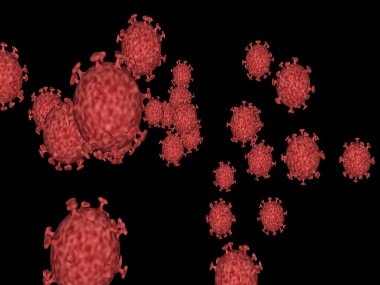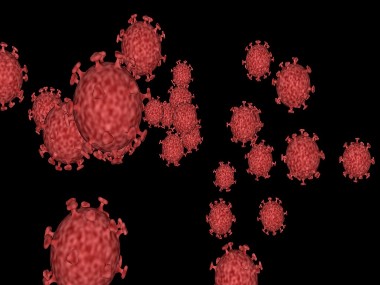The world is desperately searching for some sort of therapy against the novel coronavirus that has spread to 185 countries. One of the drugs that much of the world has placed hope on, Remdesivir, just finished an initial trial conducted by its developer, Gilead. The modest study of 53 participants (initially 61 but 8 of them were not included in the results since data could not be reliably collected) showed that 36 (or 68%) did show clinical improvement. [caption id=“attachment_8237661” align=“alignleft” width=“380”]  Representational image. Image by HenkieTenk from Pixabay.[/caption] While this is an encouraging development, the researchers underlined that this was a small, cohort study and as such cannot offer recommendations for treatments yet. Randomized, placebo-based trials of the drug are currently ongoing, most notably the WHO SOLIDARITY trials. For now, Remdesivir is available for compassionate use, meaning that doctors can request the drug if a patient is in a dire situation with no alternatives. Gilead, in a press release dated 22nd March, stated that it has stopped entertaining individual appeals for compassionate use, and is transitioning to expanded access programs that will streamline the process of data collection to study the effectiveness of the drug. According to the Washington Post, Gilead has enough of the experimental drug to treat up to 140,000 patients currently.
What is Remdesivir?
Remdesivir was developed as a general antiviral drug which has shown a response to coronaviruses such as the ones that caused SARS and MERS in in-vitro settings. Along with its complicated history of development, it faltered when tested as a drug for Ebola. Previous studies have shown that it is safe for use in humans, and a small study on monkeys also corroborated previous evidence that it could inhibit the virus that causes MERS. It is a general antiviral because it doesn’t go after individual viruses, but blocks a crucial part of the replication process of viruses. Its structure is very similar to that of a part of viral RNA that it gets picked up in the replication process and inhibits it.
What is the study’s fine print?
The trial was a multicountry effort; 22 of the patients were from the US, 22 from Europe or Canada, and 9 were from Japan. They were given a 10-day course of the drug; 200 mg the first day, and 100 mg the remaining days. Of the 61 original patients, 30 (or 57%) were on ventilator support. After 18 days, 17 out of the 30 on ventilator support were extubated as their condition improved. 25, or 47% of patients were also discharged within this period. Seven patients, or 13%, lost their lives, which compares favourably with the general survival rate of severely ill patients. In other words, two-thirds of the overall patients showed clinical improvement. For more information, read our article on Mild vs Severe Symptoms of COVID-19_._ Health articles in Firstpost are written by myUpchar.com, India’s first and biggest resource for verified medical information. At myUpchar, researchers and journalists work with doctors to bring you information on all things health.


)

)
)
)
)
)
)
)
)



